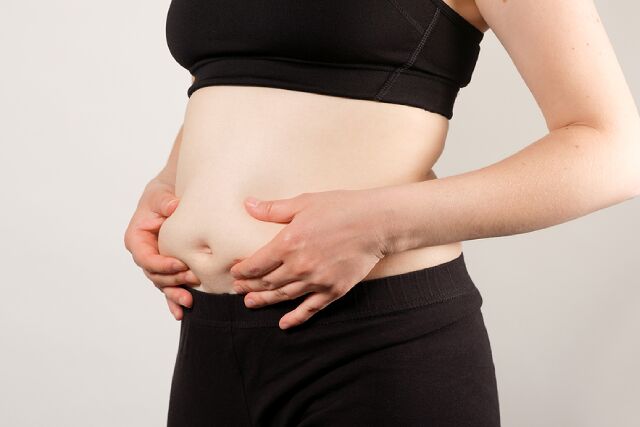The real difference between bloating and fat, what should you know?
The real difference between bloating and fat, what should you know?
Blog Article
Understanding the Difference In Between Bloating and Fat: an Essential Guide for Digestive Wellness
Understanding the distinction in between bloating and excess body fat is crucial for any individual worried with digestive system wellness. While bloating presents as a momentary and often unpleasant problem, normally connected to nutritional habits or digestion disruptions, body fat stands for a much more long-term modification in one's body.
Specifying Bloating and Fat
Bloating and fat are 2 unique physical phenomena that can significantly impact an individual's comfort and body picture. Bloating is normally a short-term incident and can change throughout the day, frequently resolving with way of living adjustments or clinical interventions.
In comparison, body fat is a much more long-term and steady element of human physiology, mostly acting as an energy book and playing important functions in hormone policy and insulation. Body fat is categorized right into two kinds: subcutaneous fat, which lies just below the skin, and visceral fat, which surrounds interior organs. While excess body fat can bring about wellness issues, it is crucial for overall bodily features.

Sources Of Bloating

Furthermore, food intolerances, such as lactose or gluten intolerance, can result in bloating when the body struggles to process specific compounds - fat vs bloating. Consuming too quickly or consuming carbonated beverages can likewise worsen the problem, as these habits present excess air into the digestive tract
Lifestyle aspects, consisting of anxiety and lack of exercise, can even more add to bloating by influencing intestine mobility. Specific clinical problems, such as irritable digestive tract disorder (IBS) or gastrointestinal obstruction, may additionally lead to persistent bloating. Understanding these causes is important for effectively managing and relieving bloating, permitting individuals to make informed dietary and way of living choices that sustain their digestive wellness.
Signs of Bloating vs. Fat
Distinguishing between the signs and symptoms of bloating and excess fat is critical for understanding one's body and addressing pain efficiently. Bloating normally presents as a sensation of volume or stress in the abdomen, commonly accompanied by noticeable distension. Individuals may experience pain, cramping, and even discomfort, especially after dishes. Bloating can likewise result in extreme gas, leading to burping or windiness.
On the other hand, excess fat manifests in a different way. While it might add to a sense of thickness, it generally does not create the acute discomfort related to bloating. Instead, excess fat tends to build up gradually, bring about a modification in physique and dimension in time. People may observe a rise in body circumference, specifically around the waistline, but this does not commonly existing with the immediate experiences of volume or distension.

Recognizing these differences is essential. While bloating is frequently momentary and connected to nutritional factors or digestive concerns, excess fat suggests a much more chronic condition needing way of life modifications. Recognizing these signs and symptoms encourages individuals to look for ideal options tailored to their details issues concerning digestion health and body structure.
Handling Bloating
Reliable administration of bloating calls for a multifaceted approach that deals with both dietary options and lifestyle habits. First, it is important to determine and eliminate specific foods that may activate bloating, such as those high in fiber, gluten, lactose, or particular fermentable carbohydrates (FODMAPs) Maintaining a food journal can aid identify these triggers and overview adjustments.
Including smaller, more constant dishes as opposed to huge ones can also reduce bloating, as it alleviates the gastrointestinal process (bloating and fat). Staying well-hydrated is important, as enough liquid intake help food digestion and assists stop constipation, which can add to bloating
In addition, taking part in normal visit here exercise promotes gastrointestinal mobility and reduces bloating. Simple exercises, such as strolling or yoga, can efficiently ease pain. Conscious eating methods, such as eating slowly and chewing food thoroughly, may further enhance digestion and limitation air ingesting.
When to Look For Assistance
Identifying when to seek medical help for bloating is critical, as relentless or severe signs and symptoms may show an underlying health concern. If bloating is come with by extra worrying symptoms such as substantial stomach discomfort, inexplicable weight loss, anal bleeding, or constant queasiness and throwing up, it is imperative to seek advice from a medical care professional. These indications might suggest conditions such as short-tempered bowel disorder, gastrointestinal obstruction, or perhaps more significant problems like cancer cells.
Moreover, if bloating lingers regardless of nutritional modifications or non-prescription treatments, it necessitates further examination. People with a history of food poisonings need to be particularly watchful, as their risk for issues may be greater. Furthermore, if bloating occurs following the intake of particular foods, it may indicate food intolerances or allergies that necessitate dietary modifications or testing.
Conclusion
In summary, comparing bloating and excess body fat is critical for digestive health and overall health. Bloating, a short-lived problem commonly connected to dietary factors and gastrointestinal problems, contrasts sharply with the stable buildup of body fat. Identifying the signs and symptoms and underlying sources of each can assist in suitable management methods. People experiencing persistent or severe signs and symptoms need to seek professional advice to attend to possible Visit Your URL health problems successfully. Comprehending visit this site these distinctions is necessary for educated decision-making regarding health and wellness and lifestyle.
Report this page